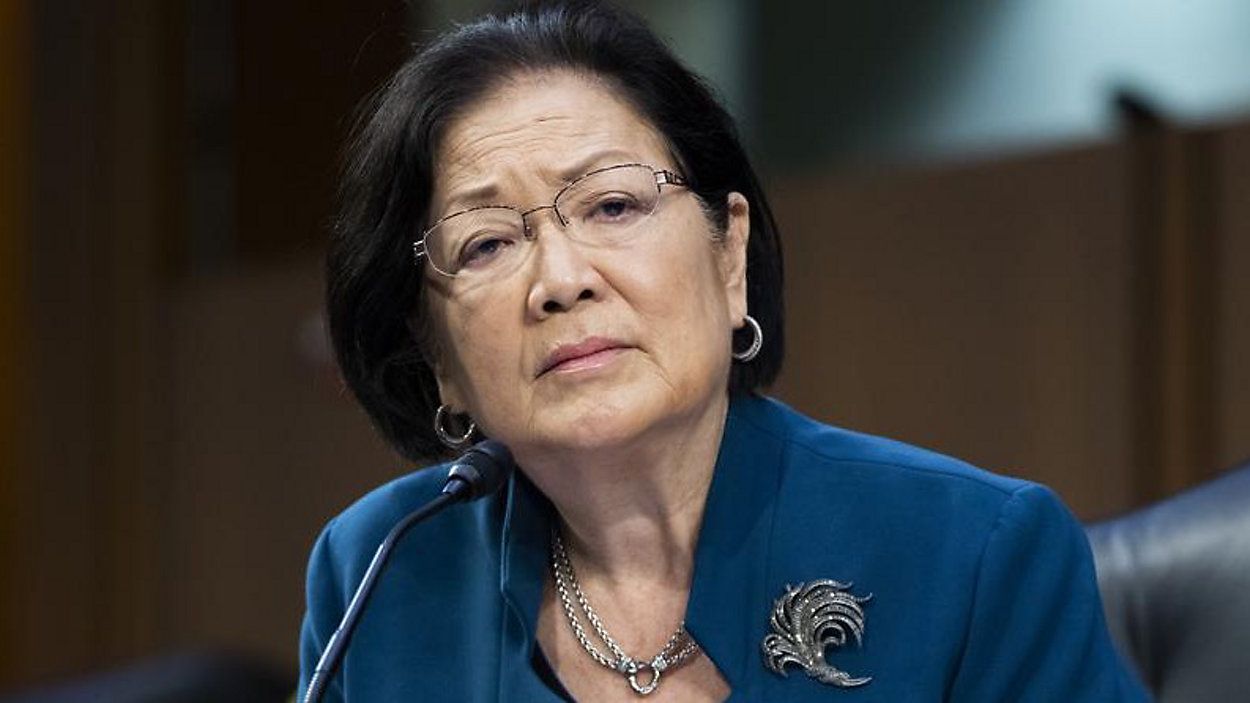WASHINGTON — During a U.S. Senate Veterans Affairs Committee hearing about the Department of Veterans Affairs efforts to provide equitable treatment to veterans from indigenous groups, Mark Upton, VA Deputy to the Deputy Under Secretary for Health, emphasized how seriously the VA takes its commitment to assuring American Indian and Alaskan Native veterans get the care and benefits to which they are entitled.
He neglected to include Native Hawaiians in that assurance, and in the rest of his formal comments to the committee, omissions that drew a polite, but firm rebuke from Sen. Mazie Hirono, D-Hawaii.
"As the Senator from Hawaii, I am very disappointed that your testimony neglected to mention Native Hawaiian veterans,” Hirono said. “As you know, like other native communities, Native Hawaiians serve in our military at disproportionately high rates.
“I know the VA understands the importance of ensuring Native Hawaiian veterans are treated with the same concern as American Indian and Alaska Native veterans — especially following (U.S. Secretary of Veterans Affairs Denis McDonough’s) recent trip to our state in October,” she continued. “But it is critical — given the historical lack of parity Native Hawaiians have received from the VA — that Native Hawaiian veterans are always included in our language and our policies.”
Native Hawaiians serve at a rate nearly 2.5 times higher than the national average, but have faced barriers to accessing physical and mental health care through the VA, Hirono noted.
“My main point is that Native Hawaiians should never be deemed an afterthought, and that when we talk about focusing on programs that support Native communities or Native veterans … I am asking that we need to always include Native Hawaiians when we start talking about all the things we are doing.”
Upton said he appreciated the senator’s acknowledgement of Native Hawaiian veterans.
“As noted in our testimony, (Native Hawaiians are) an important part of our Tribal Advisory Committee, and I really appreciate that voice being on the group that advises our secretary,” Upton said. “In talking with our region of VAs that works very closely with the team in Hawaii, I know that they are taking the work with our Native veterans very seriously, working on efforts with the University of Hawaii, as well as other outreach to the population there. We certainly welcome the impact and input on how to do better and to continue those partnerships.”
Hirono told Upton that the VA “needs to increase its understanding of Native Hawaiian culture, outreach to Native Hawaiian the community, and build ties with organizations trusted by the community to ensure Native Hawaiian veterans receive the care they deserve.”
Hirono also reminded Upton and other representatives from the VA and the Department of Health and Human Services present at the meeting that Native Hawaiians also account for the second-largest homeless veteran population on Oahu, according to the 2022 Point in Time Count, and that veterans overall have twice as many health conditions as the rest of the population.
Hirono’s call to include Native Hawaiians in discussions of issues, programs and policies related to Native peoples echoed comments made by U.S. Rep. Ed Case, D-Hawaii, at a House Subcommittee on National Parks, Forests and Public Lands in September.
During a discussion of measures addressing measures involving native cultural sites and conservation, Case expressed frustration that Native Hawaiians were routinely excluded from specific mention in legislation affecting Native Americans, Native Alaskans and other indigenous people in the United States.
“I’m really tired of having to come back and try to include Native Hawaiians all of the time,” Case said at the time. “And so, that’s a little bit of just putting it on the table here. I don’t want to do this anymore. I want bills to come before us that include Native Hawaiians. When they talk about Native Americans and Alaska Natives, Native Hawaiians are there, too.”
Michael Tsai covers local and state politics for Spectrum News Hawaii.



